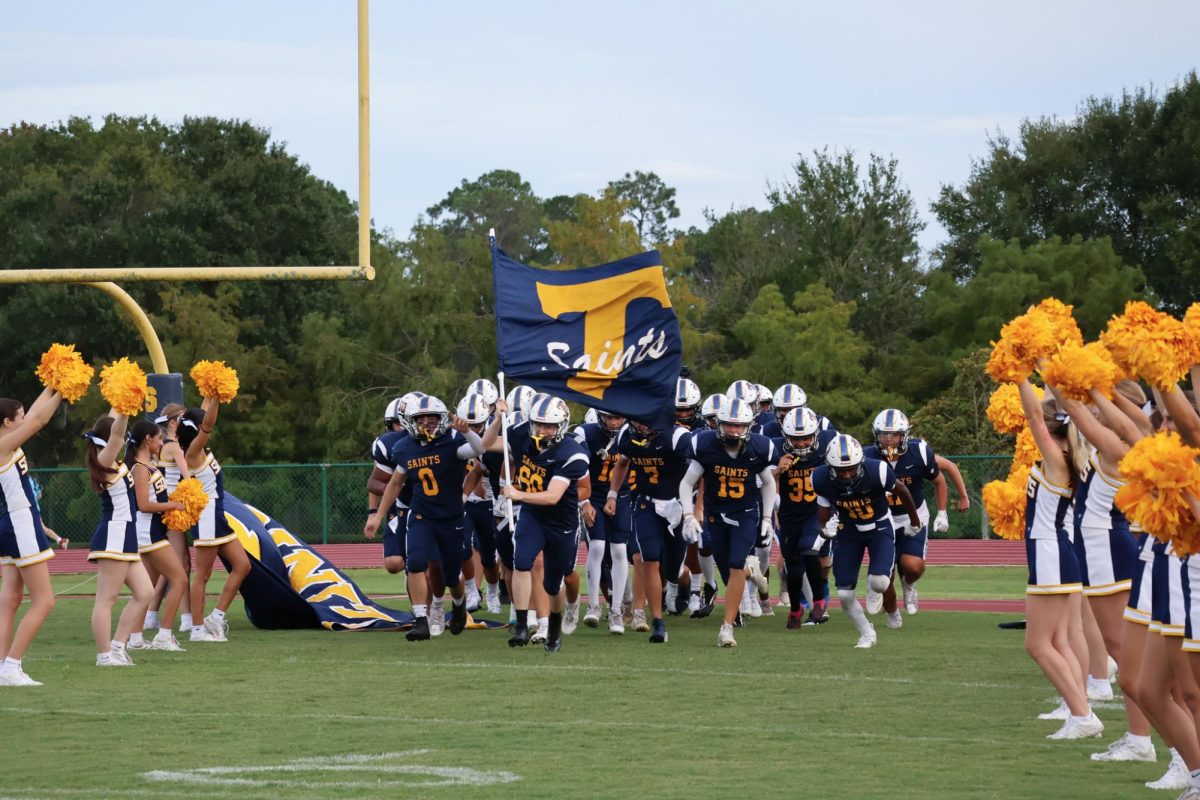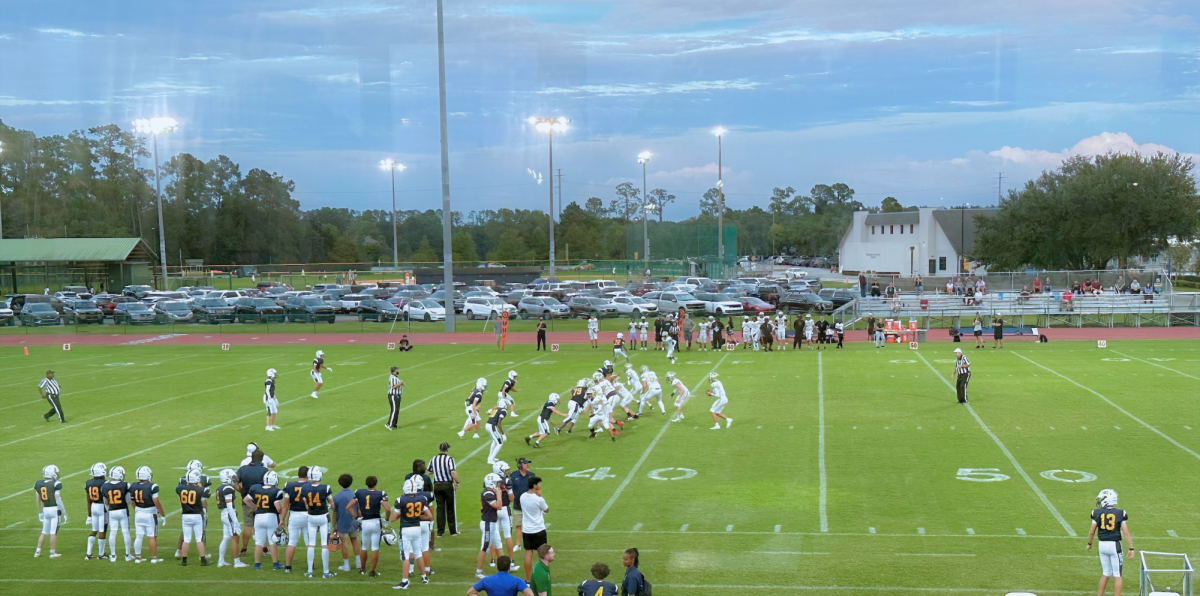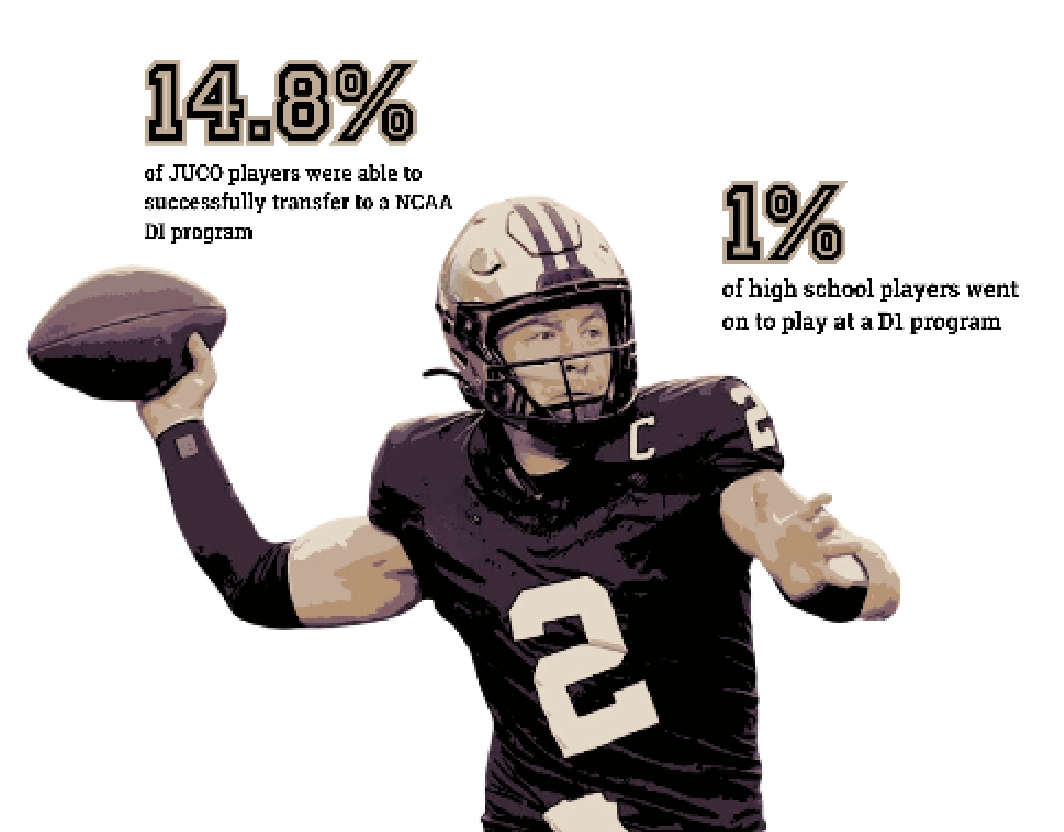Fantasy football — and most notably the punishments that its losers must endure — has grown exceedingly popular across the country in recent years. To participate in the game, players draft and manage a team of NFL players, earning points for the players’ real efforts in each game throughout the football season. According to Statista Research, fantasy football has gained over 29 million players in the U.S. alone since its creation in 1962. While this game has gained popularity over the years, many leagues have evolved from simply awarding a prize to the winner to forcing the loser to endure a brutal penalty at the end of the season.
According to the Fantasy Sports and Gaming Association, 68% of fantasy football leagues enforce punishments for the player who racks up the worst record throughout the season. Some examples of viral punishments are forcing the loser to shave their head, post cringey videos or run a mile after chugging a gallon of milk.
While Trinity Prep itself is in no way affiliated with fantasy football or the punishments, this cultural phenomenon is now infecting Trinity students, as several across grade levels have endured humiliating punishments to pay the price of placing last in their league. For sophomore David Myers, the consequence of his unlucky season was to be locked in a dog cage and ambushed with dirt, raw eggs, sardines, and all kinds of other repulsive substances by the rest of the league members. Fortunately, Myers was ready to face the punishment head-on when the time came.
“I didn’t really take it to heart because the whole point was that we agreed to it beforehand, and I would have been laughing if it was someone else in that cage,” Myers said.
Fantasy football fanatics can be found far beyond the Trinity Prep campus. Its popularity is commonly attributed to players’ desire for amusement and pride, but some see it as a way to form better connections with friends and engage with those around them.
“I’ve been around random people, and they’ll just see us talking about fantasy football and the punishments and join the conversation,” sophomore Thomas Hoskins said.
AP Psychology teacher Michael Brown said that another reason students may feel compelled to join these leagues is due to a potential fear of missing out.
“We want to survive socially, and if our social networks are all engaging in something, we’re at risk of being ostracized if we don’t participate,” Brown said.
As if the game isn’t appealing enough, forcing the loser to serve some serious time at the end of the season heavily raises the stakes. While the penalties have become so trendy because they are entertaining, Myers notes that they also force the players to be held accountable for their loss.
“I feel like if I tried to work my way out of it, it would kind of compromise the integrity of [the league],” Myers said.
In some cases, these lighthearted punishments can become instances of actual sadism, exemplifying people’s desires to put others down in an attempt to maintain their own pride. Brown compares them to fraternity hazing rituals.
“Participating in [the punishments] is like a way to prove how you will do anything to be a part of [the league],”Brown said. “As gross as it is, we all have that animalistic need to feel powerful and to feel in control even if it might mean it demeans others.”
As last-place punishments have gotten progressively more absurd over the years, they have outgrown their apparent purpose of keeping leagues competitive and turned into a social media sensation that’s sole objective is entertainment. Videos regarding fantasy league punishments have blown up across platforms like TikTok and Instagram, likely assisting the emergence of the phenomenon. While being forced to wear a ridiculous costume or spend an entire day at IHOP may seem like a nightmare to some, these punishments are what make the game memorable for players like Hoskins.
“I would probably feel a little left out if I didn’t [participate in the league],” Hoskins said. “It’s all my friends talk about when [the season] is going on.”
















